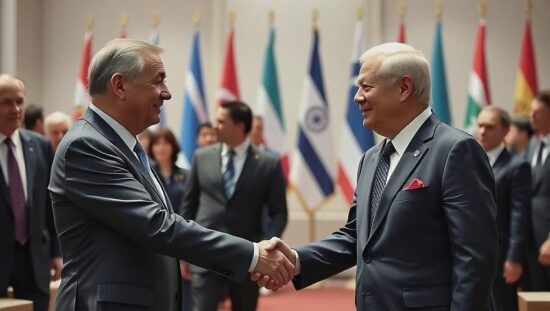The German Chancellor Friedrich Merz met with Chinese Premier Li Qiang on the sidelines of the G20 summit in South Africa, signaling a renewed, albeit cautious, effort to mend strained relations between Berlin and Beijing. Describing the encounter as a “preparatory discussion” ahead of his planned visit to China in the first weeks of next year, Merz emphasized China’s significance as a key trading partner and its potential influence on Russia, navigating a delicate balance of economic interests and geopolitical considerations.
The exchange, however, arrives against a backdrop of increasingly frosty ties. Notably, Foreign Minister Johann Wadephul’s recent abrupt cancellation of his own China trip-justified by the German Foreign Office as a lack of access to high-level counterparts-sparked considerable controversy and underscored underlying tensions. This episode highlighted the difficulties Germany faces in engaging with Beijing under present circumstances, raising questions about the sincerity of engagement on the Chinese side.
Just days prior to Merz’s meeting, Federal Finance Minister Lars Klingbeil became the first member of Germany’s governing coalition to travel to China, prioritizing trade discussions with Vice Premier He Lifeng. Klingbeil characterized the dynamic as a “competitive situation” where China, while seeking collaboration, also prioritizes its own economic advantage. He also noted a desire within the Chinese government to cultivate a “fair partnership” with Germany, a claim which will be scrutinized given ongoing concerns about intellectual property theft, market access barriers and China’s increasingly assertive global posture.
The absence of Chinese President Xi Jinping from the Johannesburg summit limited Merz’s ability to engage at the highest possible level, making the meeting with Premier Li Qiang crucial. This engagement, however, offers a limited window into the complexities of Germany’s China policy. While acknowledging the importance of economic ties, the German government is grappling with a broader reevaluation of its relationship with Beijing, balancing trade interests with growing concerns about human rights, geopolitical influence and the potential for economic coercion. The success of future engagements will depend on genuine commitments to reciprocal fairness and a willingness from Beijing to address the concerns repeatedly voiced by Berlin.





